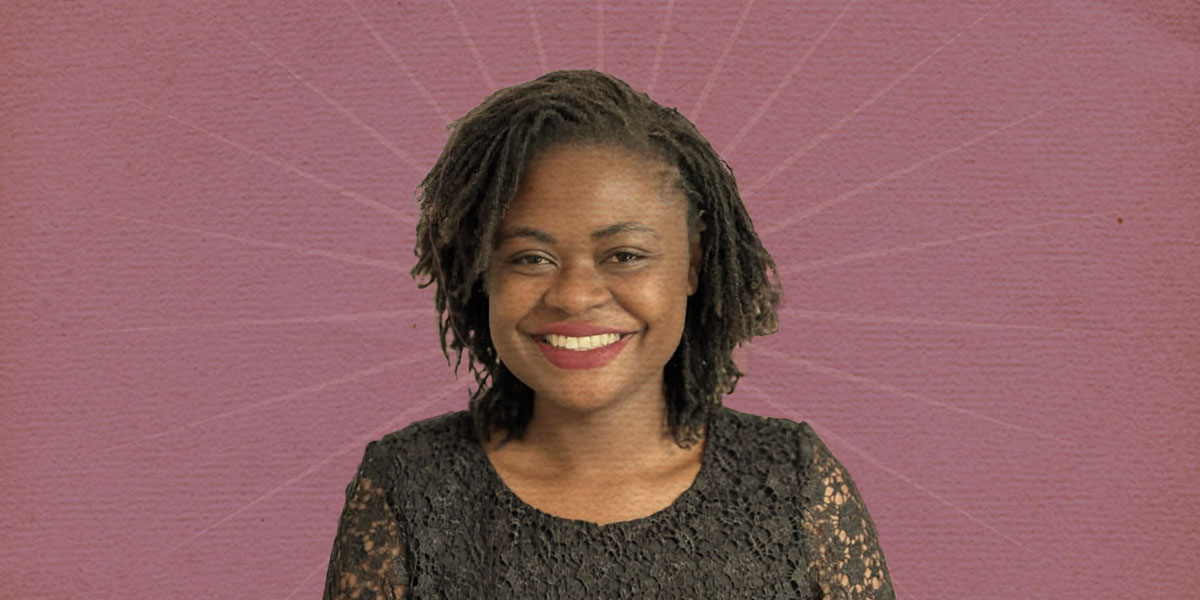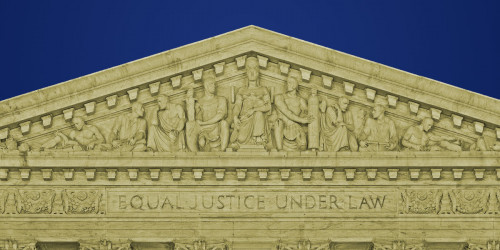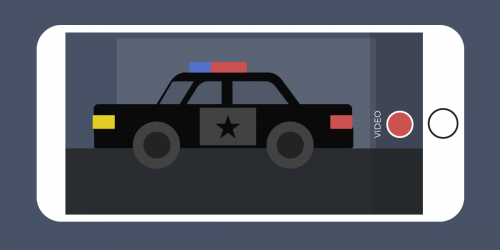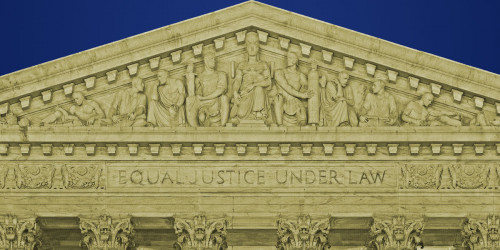Interviewer: Jillian York
Nompilo Simanje is a lawyer by profession and is the Africa Advocacy and Partnerships Lead at the International Press Institute. She leads the IPI Africa Program which monitors and collects data on press freedom threats and violations across the continent, including threats to journalists’ safety and gendered attacks against journalists both online and offline to inform evidence-based advocacy. Nompilo is an expert on the intersection of technology, the law, and human rights. She has years of experience in advocacy and capacity building aimed at promoting media freedom, freedom of expression, access to information, and the right to privacy. She also currently serves on the Advisory Board of the Global Forum on Cyber Expertise. Simanje is an alumnus of the Open Internet for Democracy Leaders Program and the US State Department IVLP Program on Promoting Cybersecurity.
This interview has been edited for length and clarity.*
York: What does free expression mean to you?
For me, free expression or free speech is the capacity for one to be able to communicate their views and their opinions without any fear or without thinking that there might be some reprisals or repercussions for freely engaging on any conversation or any issue which might be personal, but also even on any issue of public interest.
What are some of the qualities that have made you passionate about free speech?
Being someone who works in the civil society sector, I think when I look at free speech and free expression, I view it as an avenue for the realization of several other rights. One key thing for me is that free expression encourages interactive dialogue, it encourages public dialogue, which is very important. Especially for democracy, but also for transparency and accountability. Being based in Africa, we are always having conversations around corruption, around accountability by government actors and public officials. And I feel that free expression is a vehicle for that, because it allows people to be able to question those that hold power and to criticize certain conduct by people that are in power. Those are some of the qualities that I feel are very important for me when I think about free expression. It enables transparency and accountability, but also holding those in power to account, which is something I believe is very important for democracies in Africa.
So you work all around the African continent. Broadly speaking, what are some of the biggest online threats you’re seeing today?
The digital age has been quite a revolutionary development, especially when you think about free expression. And I always talk about this when I engage on the topic of digital rights, but it has opened the avenue for people to communicate across boundaries, across borders, across countries, but, at the same time—in terms of the impact of threats and risks—they become equally huge as well. As part of the work that I have been doing, there are a few key things that I’ve seen online. One would be the issue of legislation—that countries have increased or upscaled their regulation of the online space. And one of the biggest threats for me has been lawfare, seeing how countries have been implementing old and new laws to undermine free expression online. For example, cybercrime laws or even existing criminal law code or penal codes. So I’ve seen that increasingly happening in Africa.
Other key things that come to mind are online harassment, which is also happening in various forms. So just sometime last year at the 77th Session of the ACHPR (African Commission on Human and Peoples' Rights) we hosted a side event on the online safety of female journalists in Africa. And there were so many cases which were being shared about how female journalists are fearing online harassment. One big issue discussed was targeted disinformation. Where individuals spread false information about a certain individual as a way of discrediting them or undermining them or just attempting to silence them and ensure that they don’t communicate freely online. But also sometimes online harassment in the form of doxxing. Where personal details are shared online. Someone’s address. Someone’s email. And people are mobilized to attack that person. I’ve seen all those cases happening and I feel that online harassment especially towards female journalists and politicians continue to be some of the biggest threats to free expression in the region. In addition, of course, to what state actors are doing.
I think also, generally, what I’m also seeing as part of the regulation aspect, is sometimes even the suspension of news websites. Where journalists are using those platforms—you know, like podcasts, Twitter spaces—to freely express. So this increase in regulation is one of the key things I feel continues to threaten online expression, particularly in the region.
You also work globally, you serve on a couple of advisory boards, and I’m curious, coming from an African perspective, how you see things like the Cybercrime Treaty or other international developments impacting the nations that you work in?
It’s a brilliant question because the adjunct committee for the UN Cybercrime Treaty just recently met. I think one of the aspects I’ve noticed is that sometimes African civil society actors are not meaningfully participating in global processes. And as a result, they don’t get to share their experiences and get to reflect on how some developments at the global level will impact the region.
Just taking on the example you shared about the UN Cybercrime Treaty, as part of my role at IPI, we actually submitted a letter to the adjunct committee with about 49 other civil society actors within Africa, highlighting to the committee that if this treaty is enacted in the way it was currently crafted, with wide scope in terms of the crimes and minimal human rights safeguards, it would actually undermine free expression. And this was informed by our experiences with cybercrime laws in the region. And we’re saying we have seen how some authoritarian governments in the region have been using cybercrime laws. So imagine having a global treaty or a global cybercrime convention. It can be a tool for other authoritarian governments to justify some of their conduct which has been targeted at undermining free expression. Some of the examples include criminalizing inciting public violence or criminalizing publishing falsehoods. We have seen that consistently in several countries and how those laws have been used to undermine expression. I definitely think that whenever there are global engagements about conventions that can undermine fundamental rights it’s very important for Africa to be represented, particularly civil society, because civil society is there to promote human rights and ensure that human rights are safeguarded.
Also, there have been other key discussions happening, for example, with the open-ended working group on ICTs. We’ve had conversations about cyber capacity-building in the region and how that would also look for Africa where internet penetration is not at its highest and already there are additional divisions where everyone is not able to freely express themselves online. I think all those deliberations need to be taken into account and they need to be contextualized. My opinion is that when I look at global processes and I think about Africa, I always feel that it’s important for civil society actors and key stakeholders to contribute meaningfully to those processes, but also for us to contextualize some of those discussions and deliberate on how they will potentially impact us. Even when I think about the Global Digital Compact and all those issues around the Compact that the Compact seeks to address, we also need to contextualize them with our experiences with countries in the region which have ongoing conflicts and with countries in the region that are led by military regimes—especially in West Africa. All those issues need to be taken into account when we deliberate about global conventions or global policies. So that’s how I’ve been approaching these conversations around the global process, but trying to contextualize them based on what’s happening in the region and what our experiences have been with similar legislation and policies.
I’m also really curious, has your work touched on issues of content moderation?
Yes, but not broadly, because I think our interaction with the platforms has been quite minimal, but, yes, we have engaged platforms before. I think I’ll give you an example of Somalia. There’ve been so many reported cases by our partners at Somali Journalist Syndicate where individual accounts of journalists have been suspended, permanently suspended, and sometimes taken down, simply because political sympathizers of the government consistently report those accounts for expressing dissenting views. Or state actors have reached out to the platforms and asked them to intervene and suspend either pages or individual accounts. So we’ve had conversations with the platforms and we have issued public statements to highlight that, as far as content moderation is concerned, it is very important for the platforms to be transparent about requests that they’re receiving from governments, and also to be deliberate as far as media freedom is concerned. Especially where content relates to content or news that has been disseminated by media outlets or pages or accounts that have been utilized by journalists. Because in some countries you see governments consistently trying to undermine or ensure that journalists or media outlets do not fully utilize the online space. So that’s the angle that we have interacted with the platforms as far as content moderation is concerned—just ensuring that as they undertake their work they prioritize media freedom, they prioritize journalists, but also they understand the operating context, that there are countries that are quite authoritarian where dissenting voices are being targeted. So we always try to engage the platforms whenever we get an opportunity to raise awareness where platforms are suspending accounts or taking down content where such content genuinely relates to expressional protected speech.
Did you have any formative experiences that helped shape your views on freedom of expression?
Funny story actually. When I was in high school I was in certain positions of leadership as a head girl in my high school, but also serving in Junior Parliament. We had this institution put on by the Youth Council where young people in high school can form a shadow Parliament representing different constituencies across the country. I happened to be a part of that in high school. So, of course, that meant being in public spaces, and also generally my identity being known outside my circles. So what that also meant was that it opened an avenue for me to be targeted by trolls online.
At some point when I was in high school people posted some defamatory, false information about me on an online platform. And over the years I’ve seen that post still there, still in existence. When that happened, I was in high school, I was still a child. But I was interacting on Facebook, you know, we have used Facebook for so many years, that’s the platform I think so many of us have been most familiar with from the time we were still kids. When this post was put up it was posted through a certain page that was a tabloid of sorts. And no one knew who was behind that page, no one knew who was the administrator of that page. What that meant for me was there was no recourse. Because I didn’t even know who was behind this post, who posted this defamatory and false information about me.
I think from there it really triggered an interest in me about regulation of free expression online. How do you approach issues around anonymity and how far can we go in terms of protecting free expression online in instances where, indeed, rights of other people are also being undermined? It really helped to shape my thoughts around regulation of social media, regulation of content online. So I think, for me, the position even in terms of the work I’ve continued to do in my adult life around digital rights literacy, I’ve really tried to emphasize a digital citizenship where the key focus is really to ensure that we can freely express, but we need to ensure the rights of others. Which is why I strongly condemn hate speech. Which is why I strongly condemn targeted attacks, for instance, on female politicians and female journalists. Because I know that while we can freely express ourselves, there are certain limitations or boundaries that we shouldn’t cross. And I think I learned that from experiencing that targeted attack on me online.
Is there anything I haven’t touched on yet that you’d like to talk about?
I’d like to maybe just speak briefly about the implications of free expression being undermined especially in the online space. And I’m emphasizing this because we are in the digital age where the online space has really provided a platform for the full realization of so many fundamental rights. So one of the key things I’ve seen is the increase in self-censorship. For example, if individuals are being arrested over their Tweets and Facebook posts, news websites are being suspended, there’s also an increase in self-censorship. But also limited participation in public dialogue. We have so many elections happening in 2024, and we’ve had recent elections happen in the region, also. Nigeria was a big election. DRC was another big election. What I’ve been seeing is really limited participation, especially by high risk groups like women and LGBTQI communities. Especially, for example, when they’ve been targeted in Uganda through legislation. So there’s been limited participation and interactive dialogue in the region because of all these various developments that have been happening.
Also, one aspect that comes to mind for me is the correlation between free expression and freedom of assembly and association. Because we are also interacting with groups and other like-minded people in the online space. So while we are freely expressing, the online space is also a platform for assembly and association. And some people are also being robbed of that experience, of freely associating online, because of the threats or the attacks that have been targeting free expression. I think it’s also important for Africa to think about these implications—that when you’re targeting free expression, you’re also targeting other fundamental rights. And I think that’s quite important for me to emphasize as part of this conversation.
Who is your free speech hero? Someone who has really inspired you?
I haven’t really thought about that actually! I don’t think I have a specific person in mind, but I generally just appreciate everyone who freely expresses their mind, especially on Twitter, because Twitter can be quite brutal at times. But there are several individuals that I look at and really admire for their tenacity in continuing to engage on the platforms even when they’re constantly being targeted. I won’t mention a specific person, but I think, from a Zimbabwen perspective, I would highlight that I’ve seen several female politicians in Zimbabwe being targeted. Actually, I will mention, there’s a female politician in Zimbabwe, Fadzayi Mahere, she’s also an advocate. I’ll mention her as a free speech hero. Because every time I speak about online attacks or online gender-based violence in digital rights trainings, I always mention her. That’s because I’ve seen how she has been able to stand against so many coordinated attacks from a political front and from a personal front. Just to highlight that last year she published a video which had been circulating and trending online about a case where police had allegedly assaulted a woman who had been carrying a child on her back. And she tweeted about that and she was actually arrested, charged, and convicted for, I think, “publishing falsehoods”, or, there’s a provision in the criminal law code that I think is like “publishing falsehoods to undermine public authority or the police service.” So I definitely think she is a press freedom hero, her story is quite an interesting story to follow in terms of her experiences in Zimbabwe as a young lawyer and as a politician, and a female politician at that.












